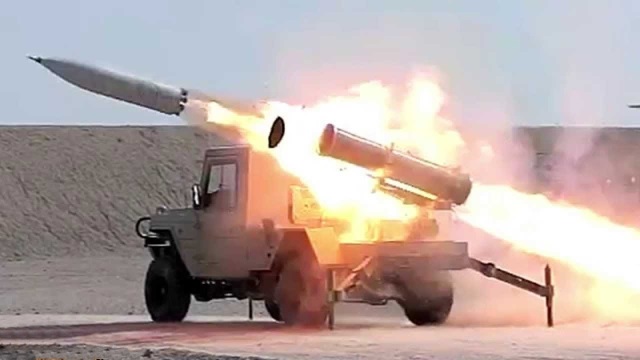“If the United States invades Iran, Israel would not last half an hour,” said Mojtaba Zolnour, head of the Iranian National Security and Foreign Policy Commission.
By World Israel News Staff
Repeated Iranian vows to destroy the State of Israel were upgraded Friday when a leading Islamic cleric stated where the Iranian attack would take place.
“If Iran wants to attack Israel, it would suffice by hitting the Dimona nuclear power plant with a rocket,” said Mohammad Ali Moohi Kerm, leading prayers in Tehran on Friday marking the Muslim Sabbath, as quoted by the government-run Radio Farda.
Dimona is located in southern Israel and is the location of its nuclear power plant.
The imam said Iran could fire “200 warheads” to accomplish its goal.
A correspondent for the official IRNA news agency tweeted that the cleric’s comments were not made in his own name but, in fact, represented the position of members of the Iranian military establishment.
Threats have come from other top Iranian figures.
“If the United States invades Iran, Israel would not last half an hour,” said Mojtaba Zolnour, the new head of the Iranian National Security and Foreign Policy Commission, on the Al-Alam television channel on June 30, as cited by Radio Farda.
Iran announced Sunday that it would increase its uranium enrichment to an unspecified level beyond the terms of its 2015 nuclear deal with world powers, breaking another limit set under the accord and furthering heightening tensions between Tehran and the U.S.
At a news conference, Iranian officials said a new level of uranium enrichment would be reached later in the day, but did not provide a percentage. Under the nuclear deal, the cap for enrichment was set at 3.67%, a percentage closely monitored by inspectors from the International Atomic Energy Agency (IAEA), the U.N.’s nuclear watchdog.
“Within hours, the technical tasks will be done and enrichment above 3.67% will begin,” Iran nuclear agency spokesman Behrouz Kamalvandi said. “We predict that the IAEA measurements early tomorrow morning will show that we have gone beyond 3.67%.”
The Associated Press contributed to this report.





